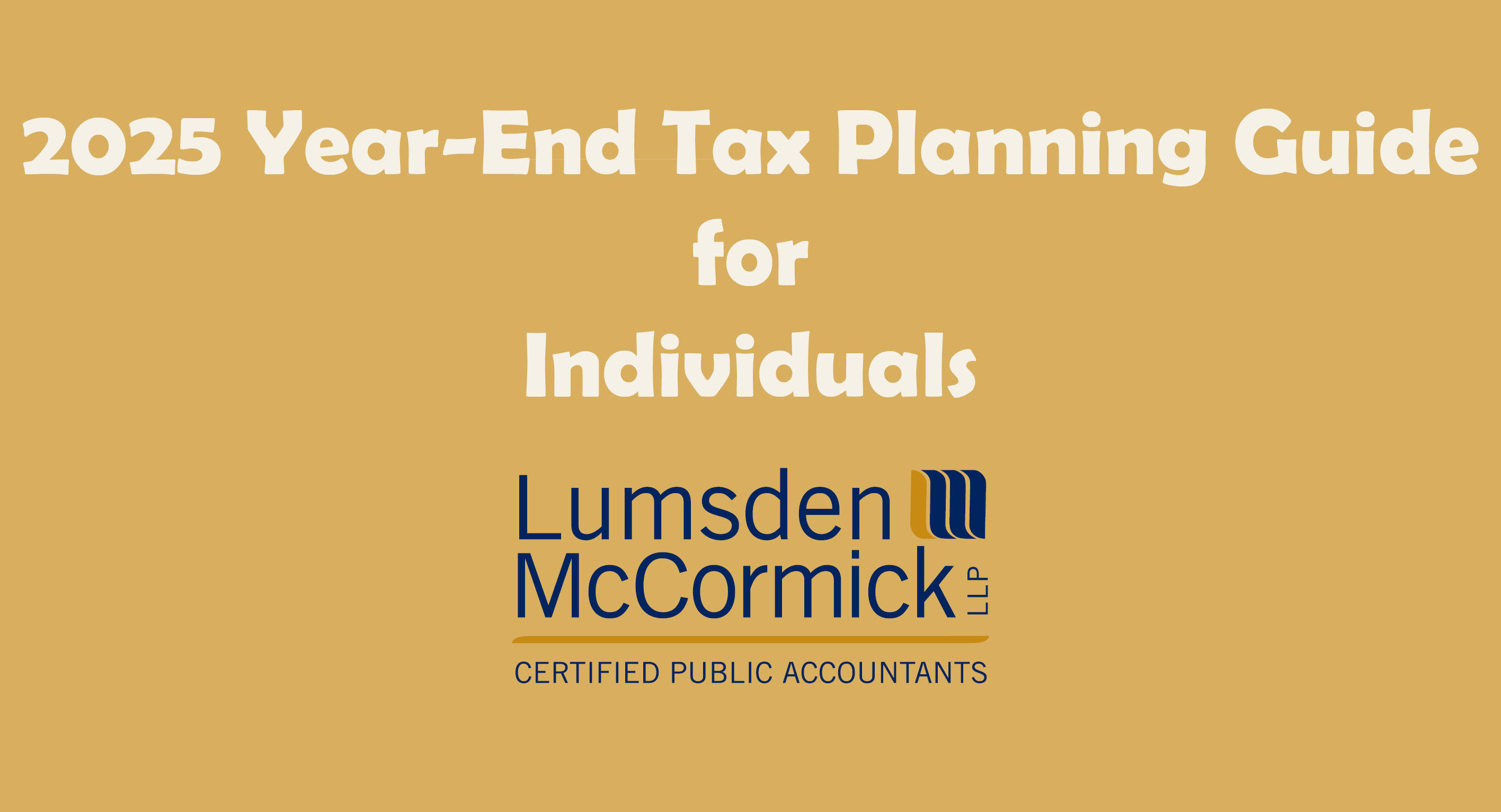Articles From Lumsden McCormick
Uniform Guidance Audit Changes
Posted by Mary Young on January 19, 2026
In April 2024, the Office of Management and Budget (OMB) published significant updates to Title 2 of the Code of Federal Regulations (CFR), which included 2 CFR Part 200 (Uniform Guidance). The revisions are the most substantial update to the Uniform Guidance since its development in 2013, and will reduce the administrative burden on many nonprofit and governmental entities.
How USPS Postmark Updates May Affect Mail Deadlines in 2026
Posted by Amanda Wojtkowski on January 15, 2026
Under the "Delivering for America" plan, the USPS has clarified that postmarks added to mail do not reflect a mailing date, they reflect a processing date. This has implications for the way time-sensitive mail, including tax return and tax payments, is received by federal agencies.
Reducing Manufacturing Waste to Enhance Profitability
Posted by Brian Stevens on December 16, 2025
Reducing waste in manufacturing improves efficiency, lowers costs, and strengthens profitability. Strategies like preventive maintenance, inventory management, and recycling help eliminate inefficiencies while boosting productivity and product quality. A commitment to continuous improvement ensures long-term operational excellence and competitiveness.
Changes Coming to Information Reporting for the 2026 Tax Year
Posted by John George on December 15, 2025
Starting in 2026, the One Big Beautiful Bill Act (OBBBA) introduces major changes to employer reporting requirements, including new W-2 codes for qualified tips and overtime income and contributions to Trump accounts. The law also raises the 1099 reporting threshold from $600 to $2,000, easing compliance for businesses. Employers should prepare now for updated forms and processes to ensure accurate reporting and employee eligibility for deductions.
Fiduciary Duty: What Every Nonprofit Board Must Know
Posted by Cheryl A. Jankowski on December 10, 2025
Fiduciary duty requires nonprofit board members to act in the organization’s best interests through the duties of care, loyalty, and obedience. Strong governance means informed decisions, legal and policy compliance, and rigorous conflict management via disclosure, recusal, independent review, and clear documentation. Breaches can lead to personal liability and reputational or tax exempt risks, so onboarding, annual refreshers, and consistent financial, risk, and strategy oversight are essential.
New Tax Law Expands Business Interest Expense Deductions
Posted by Michē Needham on December 08, 2025
The One Big Beautiful Bill Act (OBBBA) significantly expands business interest expense deductions starting in 2025. It allows a more generous calculation of adjusted taxable income (ATI) by excluding depreciation, amortization, and depletion, and broadens floor plan financing to include trailers and campers. These changes mean larger deductions for many businesses, though complex rules and exceptions still apply.
2025 Year-End Tax Planning Guide for Individuals
Posted by Cheryl A. Jankowski on December 08, 2025
As year-end approaches, individuals must prepare to review their 2025 tax situation. Our annual year-end guide highlights key opportunities and important updates that can lower tax liability and strengthen long-term financial planning.
2025 Exempt Conference Resources
Posted by Seth Hennard on December 04, 2025
View the 2025 Exempt Conference resources here.
Maximize Your Gift Tax Annual Exclusion
Posted by Isabella Newman on December 04, 2025
The gift tax annual exclusion lets you give up to $19,000 per recipient in 2025 (and 2026) tax-free, helping reduce your estate tax liability. Married couples can double this amount through split gifts, but remember the deadline is December 31 and certain gifts require IRS reporting. For larger gifts, you can use your lifetime exemption, and some payments—like tuition or medical expenses made directly—are always tax-free.
Independent Contractor Status in Nonprofit Organizations
Posted by Matthew Cronmiller on December 03, 2025
Correctly classifying workers as employees or independent contractors is critical for nonprofits. While contractors can reduce costs and administrative burdens, misclassification can lead to significant financial penalties, back taxes, and compliance issues. With shifting federal standards and varying state rules, nonprofits must stay informed and review classification practices regularly.











